
Kidney health means keeping the kidneys working well by removing waste and balancing fluids and minerals in the body. Good kidney health is important to avoid problems like kidney stones, cysts, or more serious kidney disease.
Healthy kidneys perform essential functions like filtering waste, balancing fluids, and regulating blood pressure. Common signs of a healthy kidney include:
Kidney stone treatment means using medicines, procedures, or surgeries to remove stones from the kidneys or urinary tract. The main goal is to clear blockages, stop pain, and prevent future problems. Always consult a doctor or urologist before starting any treatment.
Many people confuse kidney stones with kidney disease. A kidney stone is a hard mass formed from crystals, while kidney disease happens when the kidneys do not work properly over time. Kidney cysts are another condition where fluid-filled sacs grow in the kidneys.
What to do if you have a kidney stone depends on the size and location of the stone. Small stones in the kidney will pass on their own without help. However, larger stones often need treatment to avoid severe pain, infection, or kidney damage. Do not self-manage kidney stones. Even small stones can cause complications. Seek medical advice promptly for proper evaluation and treatment.
In rare cases, untreated or severe kidney stones may lead to kidney damage. If both kidneys are affected or kidney function declines significantly, dialysis may be required to filter waste from the blood until normal function is restored or a long-term solution is found. A common complication of kidney stones is hydronephrosis, a condition where urine backs up into the kidney due to blockage, causing swelling and pain. Prompt treatment is necessary to avoid long-term kidney damage. Consult a doctor for early diagnosis and proper treatment.
There are different treatments based on the stone’s size, location, and type. Treatments include drinking lots of water, taking medicines, or having procedures like shock wave therapy or surgery. Life expectancy depends on many factors, but how long can a kidney patient live varies, from many years with early treatment to extended survival through dialysis or transplant in advanced stages.
People need kidney health checks and treatment for kidney stones when they have pain, problems in passing urine, or signs of kidney damage. Early treatment helps avoid serious illness, stops kidney damage, and improves overall health.
The 8 common causes are:
Kidney stones and disease may not cause signs early. As problems grow, the body shows clear warning signs. It’s important to recognise both the symptoms of kidney stones and kidney disease symptoms, and remedies to take timely action.
Symptoms of kidney stones often appear suddenly and include:
In contrast, kidney disease symptoms may develop gradually and include:
Early detection helps manage both conditions effectively. Kidney disease remedies include a low-sodium diet, controlled blood pressure, staying hydrated, regular exercise, and avoiding overuse of painkillers. In advanced stages, dialysis or transplant may be required. Management of kidney disease depends on the stage, underlying cause, and individual health. Always consult a nephrologist for proper diagnosis.
A stone in the urinary tract, also known as a kidney stone or urinary calculus, can cause several noticeable symptoms. Here are the common signs to watch for:
Understanding the difference between kidney stones and kidney disease, and knowing the signs of each, helps patients seek proper treatment and protect long-term kidney health.
Doctors recommend treatment when:
Kidney cysts are fluid-filled sacs that form on or inside the kidneys. Most simple kidney cysts do not require treatment unless they cause symptoms or complications. When removal or treatment is needed, common methods include:
The appropriate treatment for kidney cysts depends on their size, type, symptoms, and underlying conditions. Always consult a qualified doctor or urologist before considering any procedure or treatment.
When wondering which medicine to take for a kidney stone, the choice depends on the size, type, and symptoms of the stone. Common medicines include:
Always consult a doctor to determine which medicine to take for kidney stones safely and effectively. Self-treatment is not recommended, especially with large stones or complications.
Quick action is important. Delay can cause permanent kidney damage.
Bangla Health Connect can help Bangladeshi patients find top kidney specialists at the leading hospitals for quick, expert care.
.png)
Through Bangla Health Connect, Bangladeshi patients can access leading hospitals across India, Thailand, and other countries that are globally recognised for excellence in kidney care. Many families travel abroad for treatment because of the specialised expertise, advanced facilities, and reliable outcomes offered by these hospitals.
Here’s why Bangladeshi patients choose kidney stone treatment with Bangla Health Connect:
Bangla Health Connect provides Bangladeshi patients with a trusted pathway to expert kidney stone specialists, advanced treatment, and international-quality care at affordable costs.
Bangla Health Connect connects patients with leading hospitals worldwide. These centres are recognised for their excellence in kidney care, the use of advanced surgical and non-surgical procedures such as laser lithotripsy, shock wave lithotripsy (ESWL), ureteroscopy, and PCNL, along with specialised support tailored for international patients.
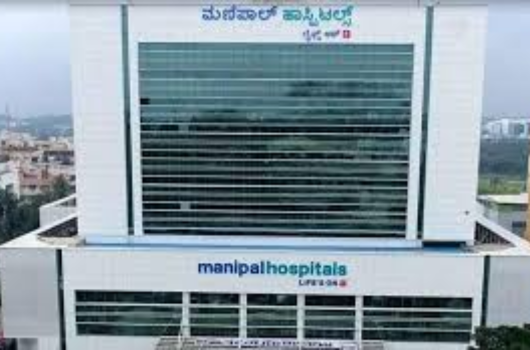

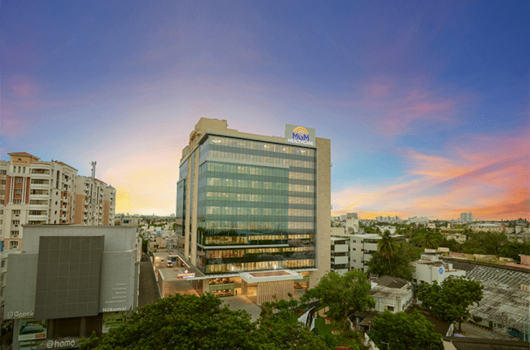
.png)
%20%E2%80%93%20Banjara%20Hills%2C%20Hyderabad.png)

.png)
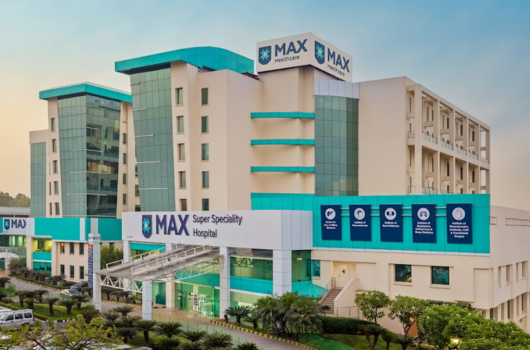
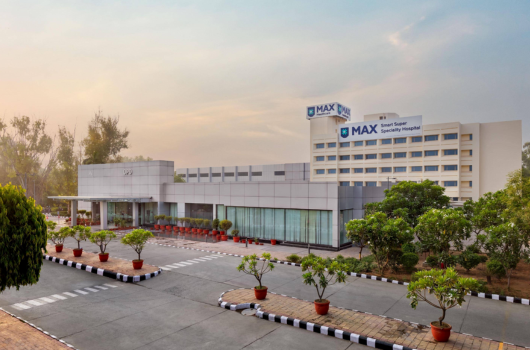

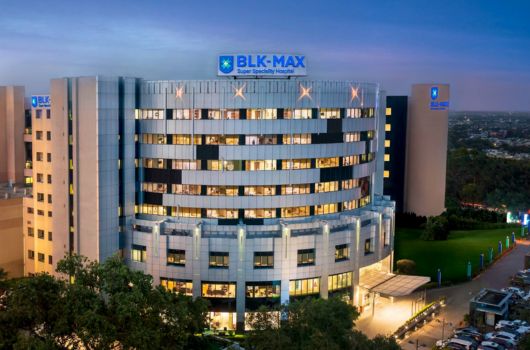

.jpg)
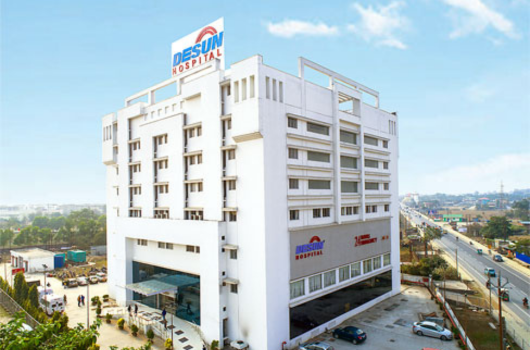



These hospitals follow global treatment guidelines and provide full support for Bangladeshi patients through Bangla Health Connect.
On average, it ranges from $400 to $1,000 in India, $3000 to $3,800 in Thailand and from $23,700 to $44,000 in China. The final cost may vary based on multiple factors such as the treatment method, hospital location, and type of problem. Before viewing the detailed table of treatment-wise costs, it's helpful to understand what influences these expenses most.
Note: India is well-known for offering cost-effective advanced treatment. Hospitals combine affordability with strong clinical outcomes, supported by skilled experts and the widespread availability of generic medicines.
Note: China is recognised for its world-class healthcare infrastructure and advanced medical technologies. Hospitals maintain high clinical standards with experienced specialists, modern diagnostic systems, and integrated patient care. The country is increasingly chosen by international patients for its strong medical expertise across a wide range of specialities.
Note: Thailand’s hospitals are often promoted as premium destinations for international patients. Their higher costs reflect the use of advanced imported medicines, luxury infrastructure, and all-inclusive patient care packages.
The costs listed are approximate and may vary based on hospital, location, and patient needs. Consult the healthcare provider for accurate and updated information.
The currency conversion rates in the table above are based on data from October 2025.
For more help on cost estimates and personalised guidance, contact Bangla Health Connect.
Among the treatment options for kidney stones, extracorporeal shockwave lithotripsy (ESWL) showed the highest success rate at 92%, followed by percutaneous nephrolithotomy at 83%, and open surgery at 78%. A combination of percutaneous nephrolithotomy and ESWL had a success rate of 62%.
In addition to its effectiveness, ESWL was the least invasive, caused no blood loss, and offered quicker recovery, making it the most cost-effective choice for the NHS.
Success in kidney treatment can mean:
Top hospitals focus on accurate diagnosis, advanced treatment, and holistic care for patients with kidney stones. Their approach includes:
This combination of advanced technology, specialist expertise, and patient-centred care has significantly improved treatment outcomes and quality of life for patients with kidney stones.

Dr. K Subramanyam, a leading consultant surgeon and Kidney Specialist at Apollo Hospitals, Jubilee Hills, Hyderabad, states that:
“Kidney stones are common but often surrounded by myths. Not all stones are painful or require surgery; only those causing a blockage do. Men are more prone, but women are also affected. Cranberry juice and coffee don't have proven roles in prevention. Diet changes depend on stone type, with oxalate-rich foods like tomatoes needing moderation for some. The key to prevention is drinking 3 to 4 litres of water daily, as low intake raises recurrence risk to 40% within five years.”
Bangla Health Connect makes the journey easier for Bangladeshi patients by offering medical guidance, travel assistance, and cost transparency. With trusted hospital connections and dedicated support, we ensure patients receive safe, timely, and affordable care.
Bangla Health Connect makes this process simple and supportive, from travel arrangements to ongoing medical guidance, ensuring Bangladeshi patients receive high-quality care with peace of mind.
Contact Bangla Health Connect today to begin your treatment journey with trusted support every step of the way.
Note: Bangla Health Connect does not provide medical advice of any kind.

A patient’s brother from Dhaka, Bangladesh, shared a heartfelt testimonial about their positive experience at Apollo Hospitals, New Delhi, under the care of Dr. Ashok Sarin, Senior Consultant Nephrologist. Suffering from diabetic kidney disease, they chose to seek treatment in India due to its advanced medical facilities and trusted specialists. He expressed deep gratitude for Dr Sarin’s expertise and compassionate care, and praised the hospital’s professional and friendly staff, accurate diagnosis, effective treatment process, and clean, well-equipped environment. Following treatment, they reported a marked improvement in their health and highly recommend Apollo Hospitals and Dr. Sarin to fellow Bangladeshi patients in need of kidney care.
✅ Share Your Reports - Bangla Health Connect connects you with trusted hospitals worldwide.
✅ Get treatment plans from leading Hospitals worldwide
✅ Choose the one that fits you
✅ Let us handle the rest
Yes, Bangladeshi patients need a medical visa. Bangla Health Connect helps you get the doctor’s letter and other documents needed for visa approval.
Yes. You can bring one or two attendants. They should apply for a medical attendant visa along with your application.
It depends on the treatment. For kidney stone removal, you may need 7 to 10 days. For surgeries like cyst removal or hydronephrosis repair, plan for 2 to 4 weeks. Recovery time varies for each patient based on their overall health, the type of procedure, and the doctor’s advice. Always follow your doctor’s recovery plan and consult them before resuming regular routines or exercise.
Yes. Bangla Health Connect will help with doctor consultations, visa papers, travel, hospital stay, treatment updates, and follow-up.
Bangla Health Connect will review your medical reports and suggest the best hospital and kidney specialist based on your needs and location preference.
Procedures like laser lithotripsy cause minimal pain. Doctors also give medicines to manage any discomfort during and after treatment.
Bring your passport, visa, medical reports, previous prescriptions, current medicines, and some extra clothes. Bangla Health Connect will guide you with a full checklist.

